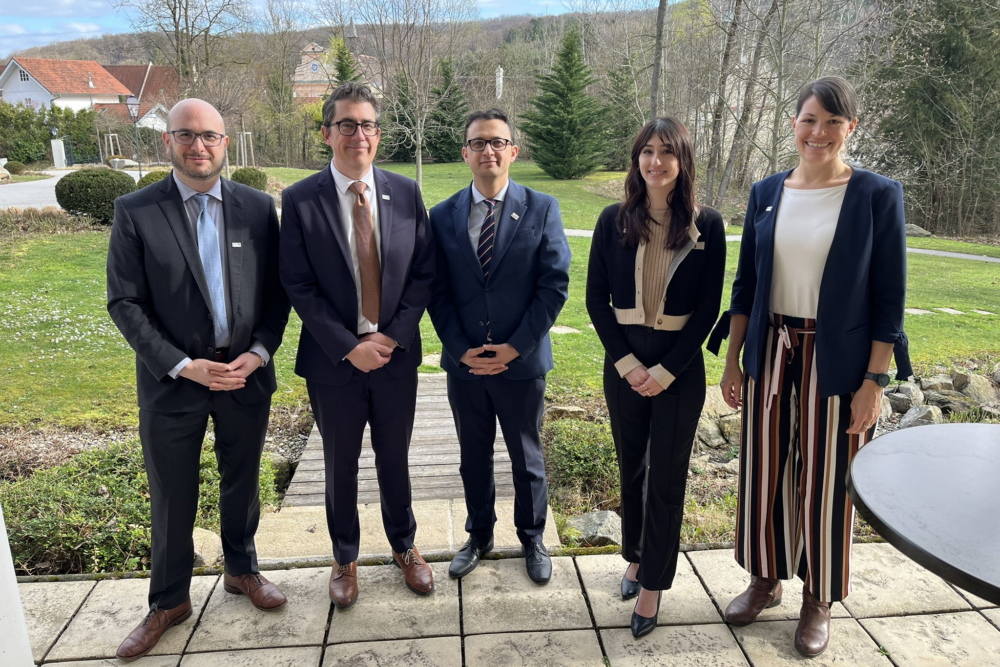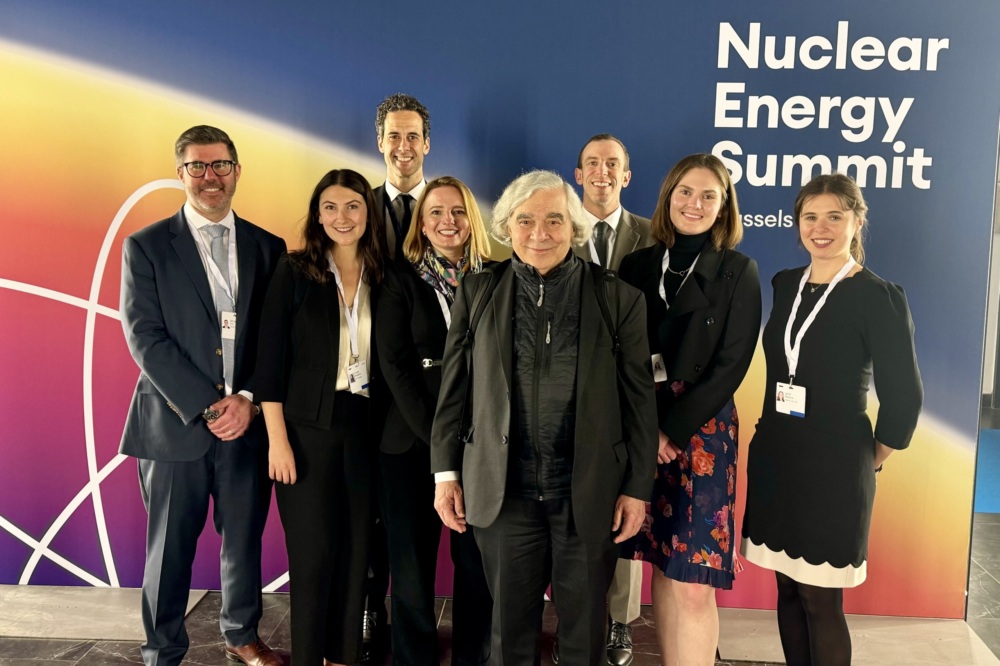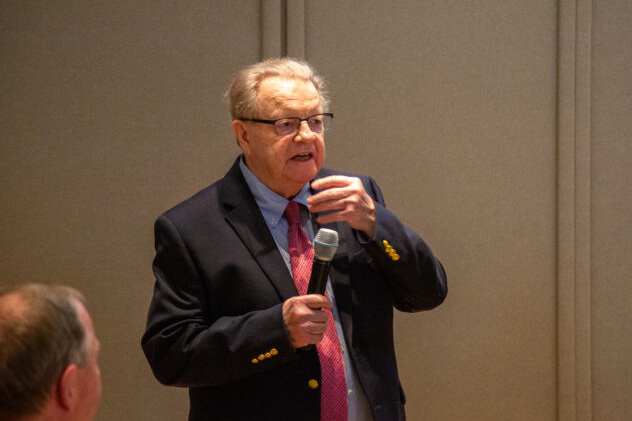Black Dawn Exercise at NATO Parliamentary Assembly Shows Europe Vulnerable to Nuclear Terrorism
Ljubljana, Slovenia — Black Dawn, a nuclear terrorism scenario-based exercise in which terrorists acquire a nuclear bomb and detonate it, was presented to NATO parliamentarians and observers from NATO member and associate states today underscoring Europe’s vulnerability to nuclear terrorism and the need to dramatically accelerate global efforts to lock down nuclear weapons and materials.
The scenario is fiction, but based on chilling, real world facts about al Qaeda’s capabilities and intent to acquire nuclear weapons and the appalling lack of adequate security for nuclear weapons and materials in many locations in or near Europe and around the globe.
In the exercise, a terrorist network acquires highly enriched uranium from civilian research reactors near Europe, constructs a crude nuclear device and detonates the bomb. Top experts in terrorism, nuclear weapons capabilities, nuclear detection, interdiction and response presented their assessment of the threat and participated in discussions with NATO parliamentarians about steps to prevent nuclear terrorism.
“We are in a race between cooperation and catastrophe,” said Nuclear Threat Initiative Cochairman and former U.S. Senator Sam Nunn. “The purpose of this exercise is to develop recommendations for preventing an attack. The good news – this type of catastrophe is preventable if we act now and act together.”
“At a time when transatlantic relations are recovering from a difficult period, the United States and Europe must recommit themselves to jointly confronting common challenges to their security and preventing nuclear terrorism must become an absolute priority for our democracies,” said Pierre Lellouche, a member of the French National Assembly and President of the NATO Parliamentary Assembly. “The Black Dawn terror scenario demonstrates the need for truly urgent attention by leaders of the highest level. Only such a commitment can reduce the risk of this fiction becoming a reality.”
The exercise and expert discussion highlighted that:
-
The hardest step for terrorists to take in getting a nuclear weapon is acquiring the highly enriched uranium or plutonium to make a weapon.
-
It is well within al Qaeda’s operational capabilities to recruit the technical expertise needed to build a crude nuclear weapon, once it has the nuclear material.
-
There are numerous targets in Europe attractive to al Qaeda and other extremists and that Europe is now a key base of operations and recruiting.
-
Europe and the United States can and must take concrete steps to significantly reduce the risk of nuclear terrorism, including a fast-paced “Global Cleanout” of highly enriched uranium from research and other civilian facilities worldwide; accelerating efforts to consolidate, secure and eliminate dangerous nuclear materials in the former Soviet Union; meeting financial commitments to the G8 Global Partnership Against the Spread of Weapons and Materials of Mass Destruction and strengthening nonproliferation regimes.
Black Dawn is sponsored by the Strengthening the Global Partnership project, a consortium of 21 research institutes from 16 European, Asian and North American countries. The project is led by the Center for Strategic and International Studies and the Nuclear Threat Initiative, a nonprofit organization dedicated to reducing the global threats from nuclear, biological and chemical weapons, co-chaired by Ted Turner and Sam Nunn




